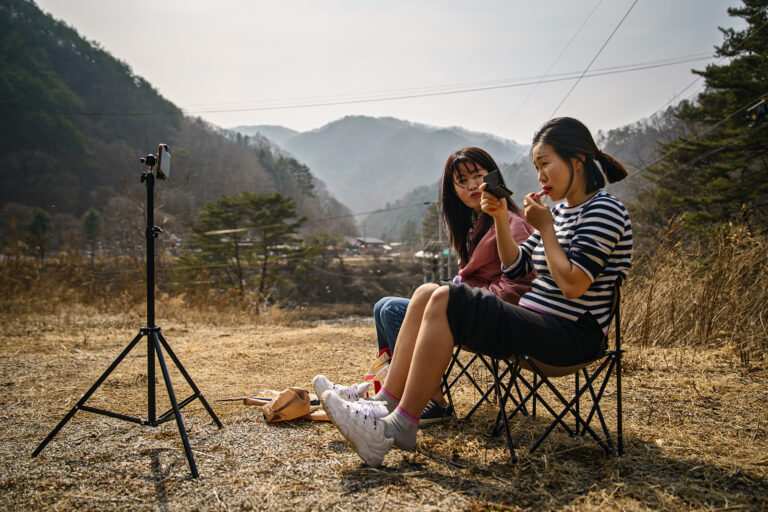
Her hair pulled back in a careless ponytail and a GoPro camera trailing her every step, Seok Hyeon Ju wanders with a kitchen knife across an empty cornfield strewn with fallen stalks.
She’s on the hunt for naengi, a spring green known as shepherd’s purse that grows in the toughest soil, which years ago she foraged as a starving child in the mountains of North Korea. She picks some and then lets out a delighted squeal when she spots a shriveled ear of corn left over from last year’s harvest.
She turns toward the camera — and some 9,000 of her YouTube subscribers — and says such a discovery would have been unbelievably lucky when she lived through a devastating famine before making her way south to a new life.
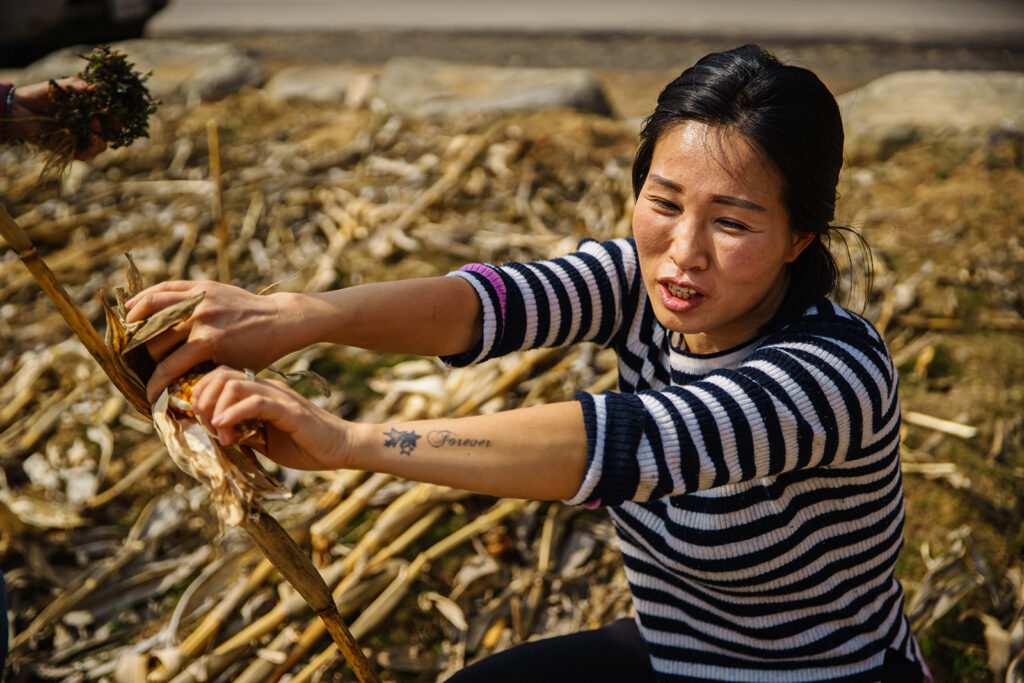
“We were so, so hungry when we were young,” the 33-year-old says, popping a hard kernel into her mouth, before pronouncing: “Not delicious.”
Seok, who calls herself “Bukhan Aeminai,” North Korean slang for girl, is part of a flourishing subgenre of YouTube channels featuring North Korean refugees talking about their ordeals. They tell of how they fled the authoritarian government. They compare North and South Korean makeup styles, recount what it was like to adjust in a capitalist country or — something that would have been unthinkable back home — criticize the North Korean government. They also cook and eat, play pranks on passers-by on the street or react to Cardi B.
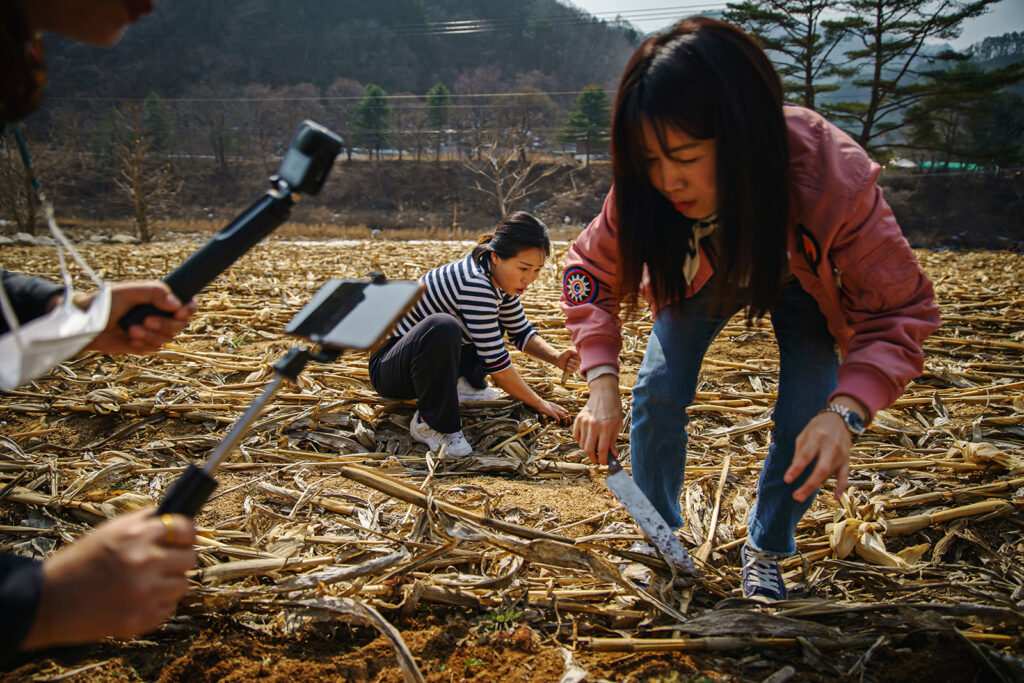
Everyone who has left the ironclad, secretive nation of North Korea has, by default, a dramatic tale of life under totalitarian rule, escape and survival. Seok’s involves a 2 1/2-year stint in a Pyongyang prison when she was 17 for crossing the border into China, passing out in the frigid waters of the Tumen River while a soldier held her at gunpoint, and being sold as a bride to an illiterate man in China.
As refugees have trickled out of the dictatorship over the last two decades, some have shared their stories through journalists, talk shows and speeches to global audiences curious about life in a nuclear-armed land ruled by a third-generation cult of personality. But the majority of the escapees chose to live under the radar, fearing for the fate of family left behind who would be punished in their stead, and unable to shake the chill of living in a society where expressing one’s opinion could result in prison or worse.
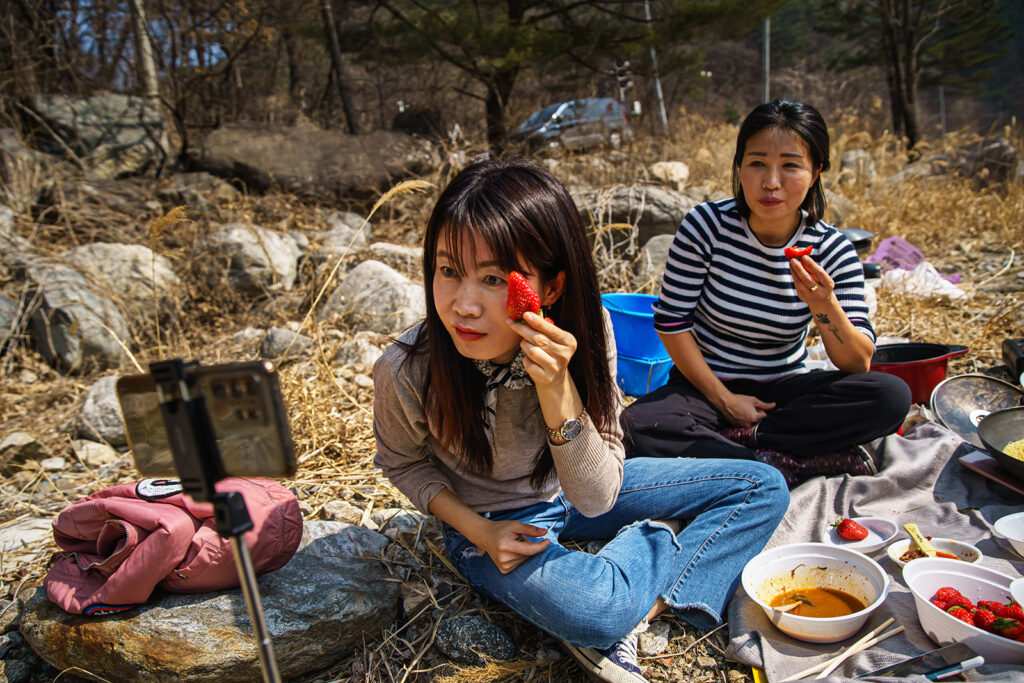
At the same time, North Korea’s young leader Kim Jong Un increasingly had the world rapt, presiding over missile tests and parades, galloping across snowy fields on a white stallion, having his half brother murdered in spy-novel fashion and befriending first Dennis Rodman, and later Donald Trump.
But in recent years those images have been at least partially eclipsed by refugees like Seok who have discovered YouTube — and the power, popularity and profitability of their own stories.

The number of North Korean refugees running their own YouTube channels has surged during the COVID-19 pandemic, as opportunities and income have waned from speeches, lectures or performances. What had been a couple of dozen YouTube channels run by the talbukmin, as North Korean refugees are known here, has grown to more than 100, several of them with hundreds of thousands of subscribers. Among them is a 33-year-old who said he left North Korea in November 2019 and launched his YouTube channel within months of arriving in the South.

Many featuring sprightly, stylish and attractive young refugee men and women, the videos are revamping for South Korean audiences the portrayal of some 33,000 North Koreans living in their midst, which was once dominated by traumatic accounts of hardship. Some are filmed or subtitled in English for viewers overseas. “Voice of North Korea,” run by Yeonmi Park, who now lives in the U.S., has nearly half a million subscribers.
“YouTube really seems the most direct, intimate way of communicating with people,” said Kang Eun Jeong, a 34-year-old radio host who left North Korea in 2008 and has 105,000 subscribers and counting. “People seem interested in the mundane daily life of North Koreans, more so than its powerful elite.”

Kang’s channel — called simply Kang Eun Jeong Television — centers primarily on conversations with her parents comparing life in North Korea with life in the South. Her most popular video, with more than a million views, is her talking with her father about visiting a farm in South Korea and how he marveled at the automation, a contrast to the labor-intensive ways back home in South Pyongan province.
“It used to be that North Koreans were embarrassed about the lives they’d led, and stayed away from talking about painful memories,” said Kang, who posts about three videos a week. “Now, everyone’s opening up on YouTube.”
Jang Jung Hyuk, 23, started his YouTube channel a couple of years ago to post highlights from his matches as a budding MMA fighter.
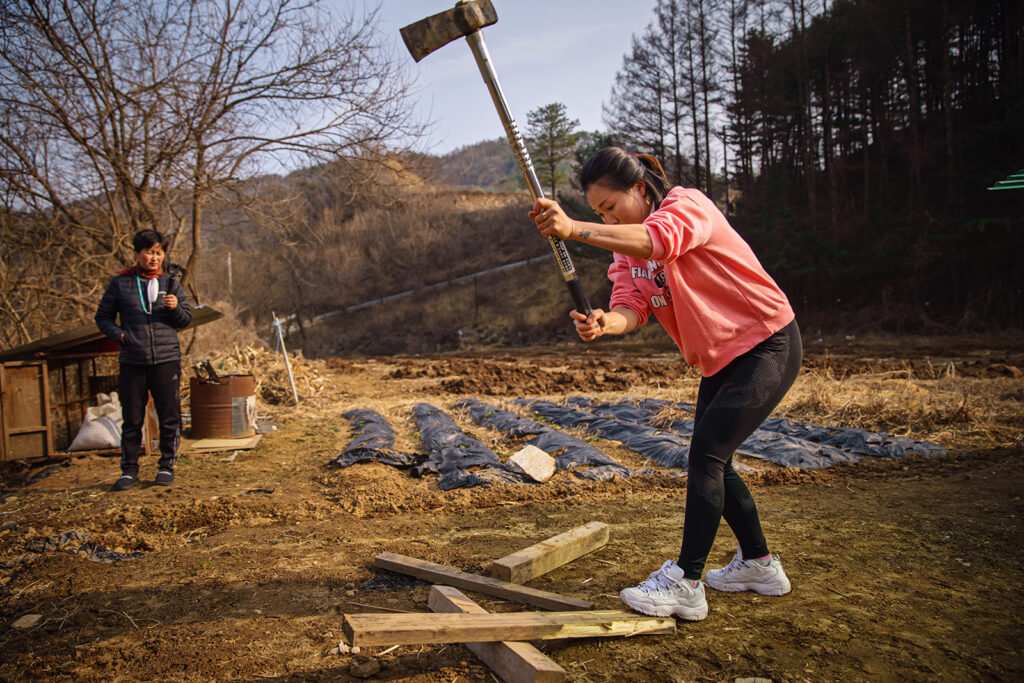
Fans grew curious about his life story just as the pandemic was beginning to cancel his matches. With extra time on his hands, he started regularly recording videos for YouTube. With his mother appearing as a guest star, Jang eats scrumptious meals — “Capitalist Mukbang,” as he titled one video — reacts to South Korea’s high-speed trains, and visits the tallest building in the country, the 123-story Lotte Tower.
“The first is that I want to show the reality of North Korea. The second is making some modest pocket money,” said Jang, explaining why he makes the videos, adding though that ad revenue from his channel was a disappointing $400 or so in recent months. “I have so many stories to tell, I love that I can freely tell them the way I want, with my own colors.”
Making the videos has also made him feel closer to his mother. In conversations they filmed for YouTube, she’d recount many detailed stories that she had previously glossed over, not wanting to subject him to painful memories — including the conditions she was kept in when she was jailed in North Korea after she was caught in China.
Choi Kum Young, 39, a mother of two who now lives in Brisbane, Australia, with her South Korean husband, said some of the responses to her YouTube videos have reassured her that South Koreans would embrace North Koreans if the two countries were to unite one day.
Even though some commenters have accused her of selling out her home country for profit, or told her to go back to North Korea, the vast majority have been curious, sympathetic and well-wishing, said Choi, who calls herself “Aoji Unni” on YouTube after the coal mine where her father was exiled and forced to labor for decades for her grandfather’s connections to Japan.
“The more North Korean voices that are out there, the better,” she said. “It’s raw, it’s real.”
Seok closed down a billiards hall she used to run last April to embark as a full-time YouTuber. Building on her strengths from her years as a scrappy, resourceful teenager in North Korea, her channel showcases her scaling mountains to pick wild mushrooms, snatching fish out of a stream with her bare hands or chopping firewood with an ax more than half her height.
On the not-quite-spring day she was hunting for shepherd’s purse, Seok cooked up a feast of corn noodles, North Korean style, for a guest, fellow North Korean YouTuber Sim Ha Yoon (59,400 followers). The two chatted about makeup and fashion in North Korea and in the South.
“I lived for two and a half years in just one piece of clothing, the uniform for prisoner No. 416,” she said.
In twice-weekly livestreams, she answers questions about life in North Korea, her family, her new life in the South and her dreams — to open her own restaurant in her 40s. In one, she received a call from her brother in North Korea — illegally calling her with a Chinese SIM card — and talked about the requests for money she gets from family members. In another, she frankly discussed the income from her YouTube channel — about $400 to $450 a month — and the fact that it wasn’t the livelihood she’d hoped for.
But her fan base is growing. The torment of her younger years has earned her loyal followers who root for her success. How long the YouTube fame will last is uncertain. But she will survive no matter what, this young woman carrying a knife across a fallow field in an adopted land, ready to spot the first green of spring, a camera in tow.
___
(c) 2021 the Los Angeles Times Distributed by Tribune Content Agency, LLC.
0 comments :
Post a Comment